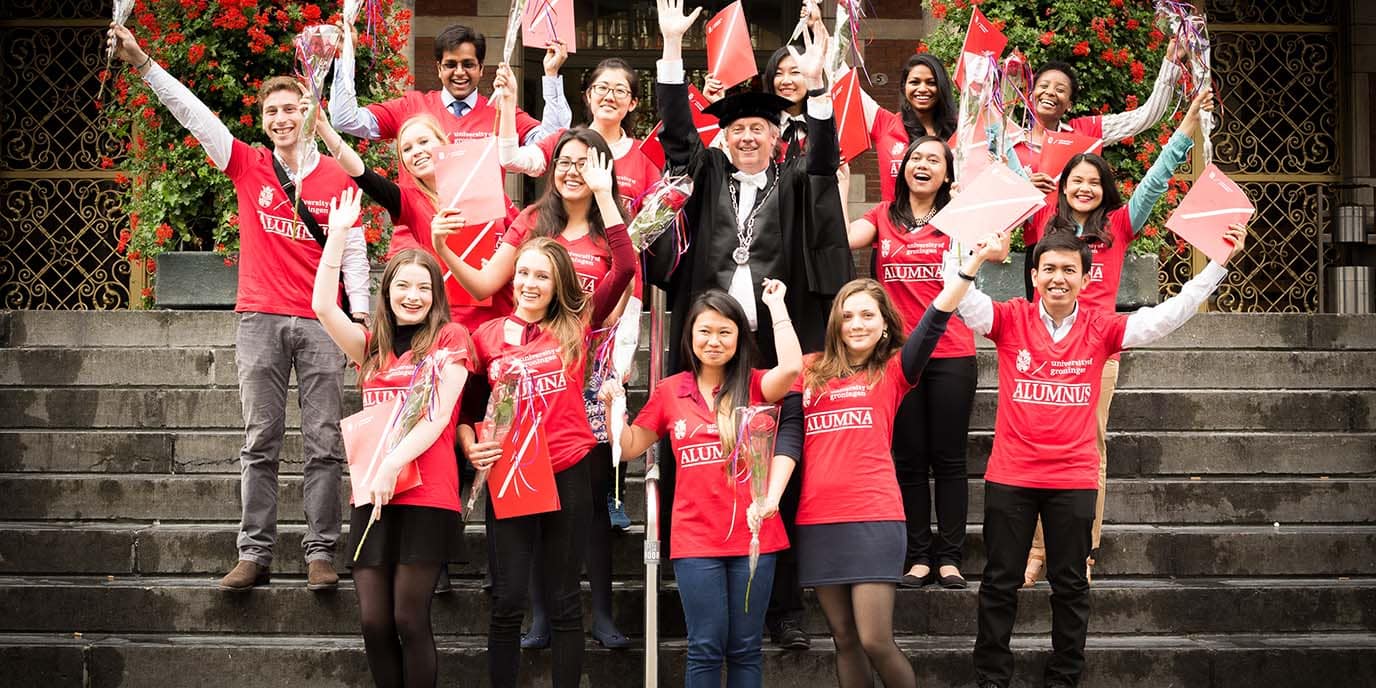
The Mindwise Survival Guide to Studying Psychology – Part 3
Moving to Groningen to study Psychology is an exciting time, but it can also be confusing. We’ve made it easier for you by asking students who have lived in Groningen for a while to share their top tips for learning the city, adjusting to studying at University, and navigating the Department. In the third and last part today, our students offer their secrets to living in Groningen and working in the Psychology department.
What do you think? Is there something we’ve missed or neglected? Share your own advice in the comments section below!
Website to join when you move to Groningen
OK, so the answer here was obvious for many: you should subscribe to Mindwise, like its Facebook page, follow it on Twitter, and make sure you listen to all the amazing podcasts we’ve got on our Soundcloud page.
Besides all that, though, there was a lot of other good advice. Hannes summarized a lot of suggestions very well: “First, subscribe to Mindwise. Second, look for the Facebook group of your cohort. Groningen psych students are known for their cooperativeness and helpfulness. The Facebook group will support you in any kind of crisis. Third, all the car-sharing, NS group tickets, bicycle sale and other practical groups on Facebook”. Lena added “Marktplaats, an online platform for all second hand stuff you could ever need and eet.nu to find cafés and restaurants that fit your taste and diet”, while Charlotte offered opentot.nl and Hilka http://www.thuisbezorgd.nl/ for all your food deliveries. If you’re really into food, Nikolai suggested De Smaak van Stad (“Just discovered it but since I am a big food lover this is perfect for me. Basically keeps you updated with the food scene in Groningen and also does reviews of restaurants”).
Tim suggested following the ESN webpage and a second Tim reminded us of the University Newspaper site.
Finally, some practical weather advice from Boris: “Not a website, but an app for your phone – Buienalarm. It makes a graph of time on the x-axis and rain intensity on the y. It also sends you a message when it is about to rain.”
Secret Gems in Groningen
We asked everyone to share their best-kept secrets, the places, sights, sounds, and smells they love the most and we were happy with everything we got (though, some were less reluctant to share their secrets “haha nice try”).
Lena mentioned “The Free Café, a place for free meals, meeting people from all over town, cooking, singing, relaxing, gardening, learning new skills and sharing ideas…” (have a look at the Free Café’s site for an update on its current work – ed.) and Thore the “massive Asian shop, where you will be able to find everything imaginable (Asian)” (that’s the Amazing Oriental store on Korreweg; and yes, it’s pretty amazing – ed.)
Laura said that “near the Jumbo near the highway by Zernike there is a beautiful little harbor with very colourful houses” and Yavor offered a bit more on this “A place not far from the Zernike campus called Reitdiephaven. It has possibly the most aesthetically pleasing set of colorful houses I’ve ever seen.”
Cycling spots are popular secrets for many. Charlotte just said “Tjardaweg”, Martin the Hoornsemeer, Lukas said “the Stadspark is amazing all year” (Flo agreed: “so underrated!”).
Boris speaks fondly of “the bridge at A-weg always smells like a freshly opened package of dark tobacco” and Nikolai appears to be inviting us all over for a beer: “our house’s porch. Perfect for a warm summer evening”.
My own favourite suggestion came from Marcel: the RKZ cinema. Excellent movies; great price!
Tips for surviving your first semester in Groningen
If I were to summarise all the tips we got, it would be with the word balance! “Start studying statistics on day one!” says Thore, “Start studying early and you don’t have to stop partying ever” offers Lukas and Yavor agrees that you should “not underestimate Stats 1a. Taking it or not can make a huge difference later on.” All this means “good time management” (Charlotte), “not freaking about stats” (Laura), “study!!” (Hannes), “getting used to multiple choice exams and try to find a nice study group” (Thole), “study a lot during the day – but go out at night and make friends” (Tim),”don’t stress out too much over little things!” (Laura), “Stay organized that way you will have plenty of time to explore the city” (Nikolai), “a healthy combo of good parties, enough sleep, and coffee” (Xenia), and “Do at least one thing for your studies every day, even if you don’t think you need to at this point. It will save you a lot of hassle when the exam period approaches” (Boris).
Lena is certain that “when you have a bike (with working front- and back lights, don’t risk a fine!), you are pretty much set: go around town and explore, meet new people, go to events and try new activities to enjoy your student life to the fullest! But don’t forget to keep up with your studies, when you’ve set a routine in the first semester you’ll cope better with the workload throughout the year. And ask for help when you need it: study buddies, your mentor, friends, the study association VIP and a range of university facilities can help you with (almost) anything”, just don’t forget basic survival (“avoid near-death experiences by riding an at least somewhat trustworthy bike” says Anja). And, let’s not forget Martin’s wisdom on survival: “wear a helmet when you bike and always have lights with you, don’t drink and ride (a little bump and you’ll spill everything!), make sure your brakes work, always use protection, register with your huisarts if you actually really need to get a GP appointment, sort out the formal stuff quickly (zorgtoeslag, health insurance, etc.”
Finally, Sandy reminds us to stay cool: “don’t stress out too much, there is a solution to everything. Just talk to people, they are usually very happy to help out.”
Best tip for understanding how life at the department works
The message here was loud and clear: be involved!
“Be nice and people will be nice to you” (Thore)
“Everyone is very open and friendly” (Charlotte)
“Just be curious and don’t hesitate to talk to people and you’ll find out soon” (Hannes)
“Become a Year Representative or join another organ (e.g. Faculty Council)” (Thole)
“The department is very organized – be so, too! Every action needs to be started by you. You will always find answers, support or help at the department, but it all depends on you” (Hilka)
“Most people are very relaxed and friendly” (Johannes)
“Get involved! Ask lecturers, talk to lecturers, volunteer as a research assistant or for other projects. As long as you are polite and not annoying, almost everyone will be very happy about motivated students. After a while, you will know how things work here” (anon.)
“Talk to people. The faculty of Behavioral and Social Sciences has the greatest collection of open-minded people who are always in the mood for a break” (Anne-Sophie)
“Talk to the professors. Don’t expect them to know how department life works either. Get involved and find out/create it together. So far, I haven’t encountered one person from the department who was not willing to cooperate or help me” (Sandy)
“If I could use three words to describe how life as a student at the department works: autonomy, initiative and opportunity. First, it is expected that you check on things yourself. Second, taking initiative is essential. Third, there are a lot of opportunities – don’t hesitate to take them when in sight. In short, create the environment that you want to be in” (Tim)
“First of all- be interested in life at the department. Check out newsletters and flyers at the faculty. Join symposia and presentations if you can. Furthermore, mindwise-groningen.nl is a great place to see what researchers at the department are working on. Ask your teachers about life at the faculty and I’m sure they will gladly give you a few pieces of information and maybe even some tips and tricks” (Yavor)
“Spend time at the department for studying, lunch or coffee breaks, keep an eye on all activities (check for example the posters and TV screens in the faculty or follow Mindwise) and, above all, get involved: visit the Block Talk (more on this topic, soon – ed.), get active as a research assistant or as a year representative” (Lena)
“If you want to understand how the department works, do not be afraid to approach people (researchers, your professors, the portiers, anyone) with questions and requests. Everyone here is surprisingly open for collaboration and novel ideas!” (Boris)
“Do a research internship, get acquainted with staff” (Flo)
And don’t forget the most important thing:
“Between 12 and 13.30 it is lunch time” (Nikolai)
NOTE: Image by Michiel Jelijs, licenced under CC BY 2.0



